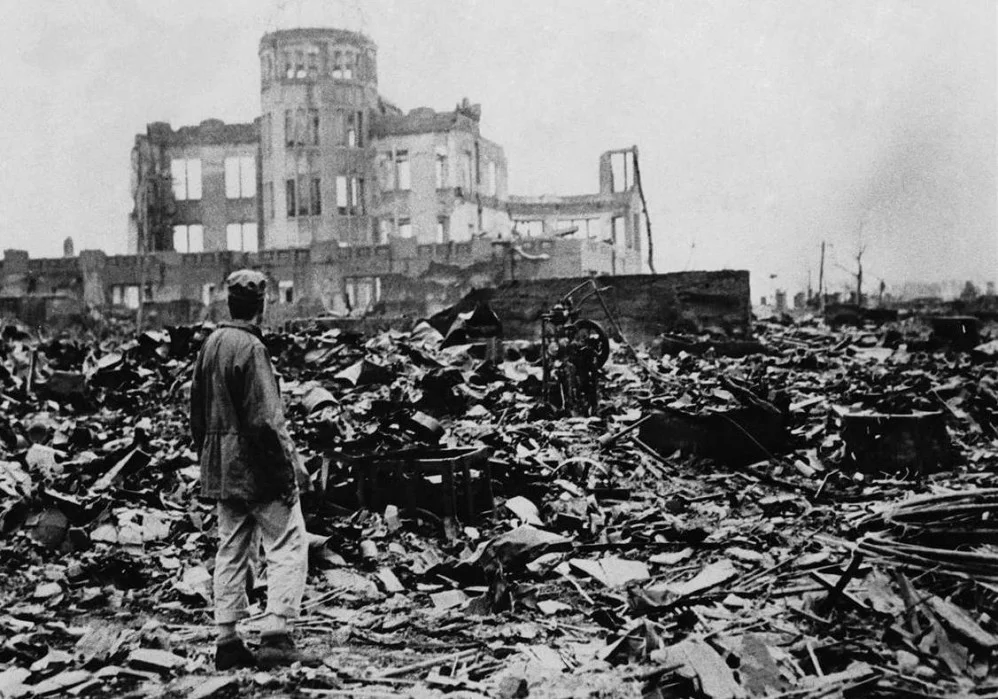The problem with protracted prosperity is that it can make it difficult to understand poverty. That myopia can lead to rash decisions that fritter away wealth and provide a stark reminder of want.
We see it today with the perplexing rejection by some of vaccinations, a miracle of medicine so overwhelmingly successful that many horrible maladies were wiped from our consciousness. I’m just old enough to recall from childhood elderly neighbors whose limbs were twisted and frozen by polio, permanently crippling them. They were the absolutely luckiest ones to have contracted the contagious disease, having survived a painful, early death.
A similar scenario now appears to be playing out on the geopolitical stage. Seventy-plus years on from the scourge of World War II, America, under the batshit anti-leadership of Donald Trump, is attempting to withdraw from alliances and agreements that have long prevented the kind of large-scale conflicts that cause tens of millions of deaths. Are we to be reminded the hard way of such calamities?
In Yuval Harari’s Homo Deus, the historian argues that physical wars are on the wane because information, not loot or land, is now most valuable. That may be so, but that theory hinges on states being governed by rational minds, which, as we have seen, is not necessarily a given.
In “The End of History Is the Birth of Tragedy,” a Foreign Policy piece by Hal Brands and Charles Edel, the essayists wonder if our prolonged period of relative global peace may be interrupted in the most horrible manner. “This amnesia is afflicting us precisely as the international environment is once again becoming more threatening,” they write. The opening:
The ancient Greeks took tragedy seriously. At the very height of Athenian power in the 5th century B.C., in fact, citizens of the world’s first democracy gathered annually to experience tragedy. Great theatrical productions were staged, presented to the entire community, and financed by the public treasury. While the dialogue and plot lines varied, the form, and the lesson, remained consistent. Prominent individuals fell from great heights due to their own errors, ignorance, and hubris. The injunction was clear: The destiny of society was in the hands of fallible men, and even in its hour of triumph that society was always perched on the abyss of catastrophic failure.
This tragic sensibility was purposefully hard-wired into Athenian culture. Aristotle wrote that tragedies produce feelings of pity and horror and foster a cathartic effect. The catharsis was key, intended to spur the audience into recognition that the horrifying outcomes they witnessed were eminently avoidable. By looking disaster squarely in the face, by understanding just how badly things could spiral out of control, the Athenians sought to create a communal sense of responsibility and courage and to encourage both citizens and their leaders to take the difficult actions necessary to avert such a fate.
Americans, too, once had an appreciation of tragedy. After World War II, Americans intuitively understood — because they could remember — how catastrophic a breakdown of world order could be, and they were constantly reminded by the looming Soviet threat that international stability and peace could not be taken for granted. And so, over a period of decades, the United States undertook the unprecedented geopolitical efforts necessary to ensure that world order did not collapse once again. The result was something like a flawed masterpiece — a postwar international system that was never perfect, but one in which aggressors were contained and ultimately defeated, democracy spread more widely than ever before, and both global and American prosperity reached dizzying heights. A tragic sensibility propelled Americans to do great things.
But as has been said before, Americans are serial amnesiacs. And today, after more than 70 years of great-power peace and a quarter-century of unrivaled global supremacy, Americans have lost their sense of tragedy. The U.S.-led international order has been so successful, for so long, that Americans have come to take it for granted. They have forgotten what that order is meant to prevent in the first place: the sort of utter breakdown of the international system, the descent into violence and great-power war, that has been all too common throughout human history. And this amnesia has become most pronounced, ironically, as American power and the international order are coming under graver threat than at any time in recent memory. Today, the United States and the world it did so much to create are once again courting tragedy — precisely because Americans have lost their ability to imagine what tragedy really is.•

